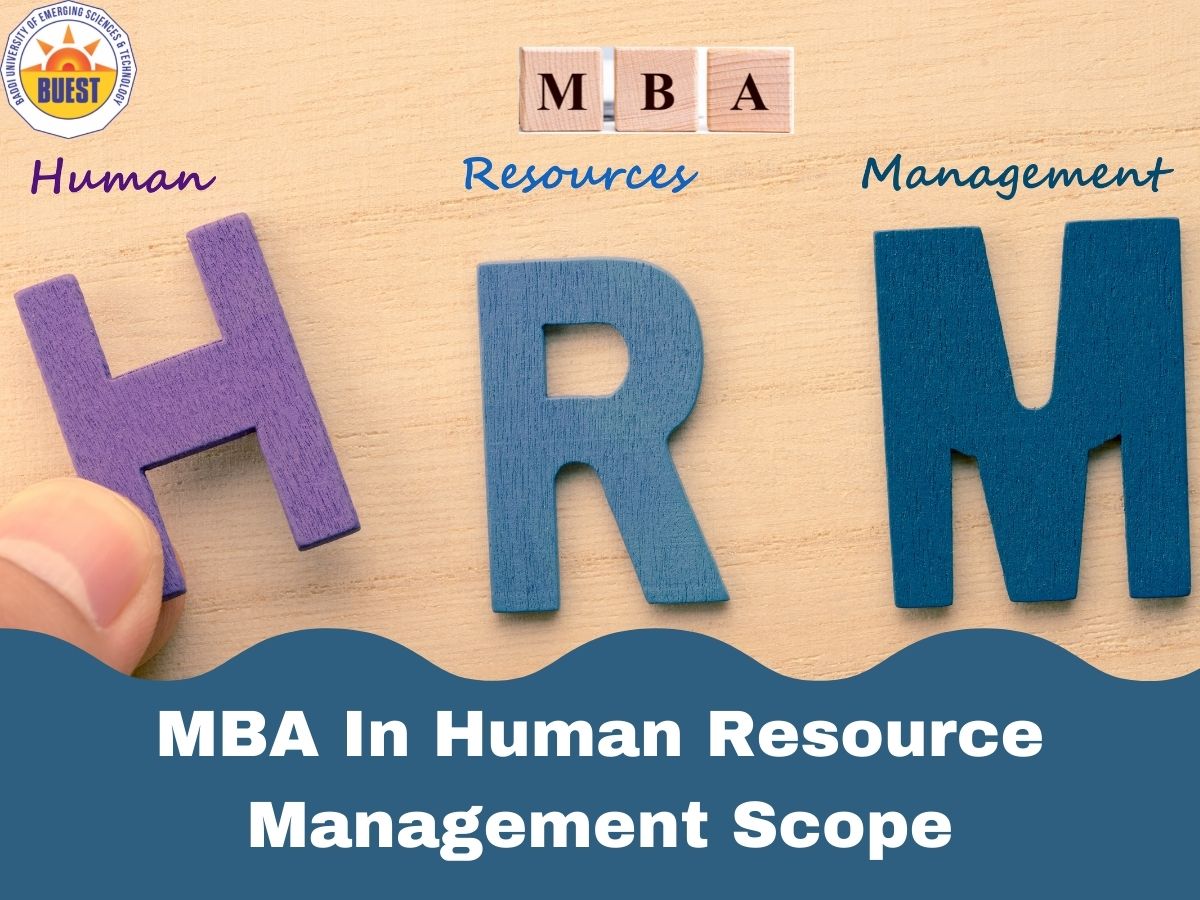
MBA In Human Resource Management Scope
MBA is regarded as one of the most renowned degree programs, with the vast majority of students enrolling in its many courses. MBA programs include MBA in Banking, Airport Management, and Entrepreneurship, among others.
In human resources, an MBA also has a large scope and promising professional prospects. In this blog, we will examine numerous course-related and career-related topics of the MBA in HR.
In business and management, the term human refers to the individual who a company recruits.
And resources allude to the restricted supply. Consequently, Human Resource Management entails regulating the availability of and effectively employing human resources.
“Human Resource Management” is a function that entails the hiring of employees, the provision of development and training, the maintenance of workforce regulation, the evaluation of their performance, the provision of compensation and benefits, the motivation of employees, and the assessment of their relationship with labor, health, and safety.
Simply, it is the process of employing and developing individuals to meet the demands of a business.
MBA in Human Resource Management Scope
In modern times, an MBA in Human Resources is a very competitive field, and the competition is anticipated to rise with time. This is since personnel is the most significant aspect of any firm; consequently, personnel management should be the primary focus.
A student with an MBA in Human Resources might earn lucrative salaries by selling their services to businesses. Not only is the scope of this activity expanding nationally, but also internationally.
Duration for MBA in HR
MBA in Human Resources is typically a 2-year program, whereas the minimum and maximum durations for distance learning courses are 2-2.5 and 4 years, respectively. A Human Resource Management Executive MBA program ranges from one to two years.
Course Curriculum of MBA in HR
A Master of Business Administration degree takes two years to complete. Your interest and specialization are contingent on your selection. These include finance, HR, operations management, etc.
For admission to any MBA program, you must have earned at least 50 percent in any undergraduate major. Students build general management skills in the first year, and in the second year, they learn about Human Resource procedures.
Students are instructed during the course term on strategic management, human resource development, and regulatory aspects of management. In addition, students are instructed on the cultural, economic, and financial elements that influence employee interactions.
Eligibility for MBA in HR
Many students apply to the program with a diverse selection of MBA in HR programs. Students who intend to pursue an MBA in human resources must review the eligibility requirements. The following are the general eligibility requirements for the majority of colleges.
- Students must hold a Bachelor’s degree in any field from a recognized university or college with a minimum of 50 percent or an equal CGPA.
- Final-year students are eligible for admission depending on their grades.
- Students may also be required to take exams such as CAT/MAT/XAT or ATMA for admission to the MBA program. Some associated universities administer their entrance exams.
- Students should also provide IELTS or TOEFL scores, whichever is required by the nation to which they apply.
- A few institutions employ Group discussions and Personal Interviews to choose the most qualified applicants.
- Some universities, like Indira Gandhi National Open University and Sikkim Manipal University, offer a Human Resource MBA through distance learning. However, IGNOU administers an entrance exam called OPENMAT.
Payscale for Human Resource Management Jobs in India
HR is currently regarded as one of the highest-paying industries. Consequently, an increasing number of individuals are choosing to enroll in HR Management courses.
If you have the necessary skills, you can earn between 3 and 6 lacs INR as a beginning in the sector. If you have exceptional training, you have the opportunity to earn up to INR 9 lacs every year.
However, this is not the end. The majority of organizations provide bonuses ranging from INR 2,000 to INR 204,000. The amount might reach a staggering 1 465 823 INR each year when profit sharing and commission are included.
Career Scope of MBA in HR
As previously said, employment prospects in this field are many. The reason for this is that all industries must hire an HR administrator(s) to settle and manage the activities of the recruitment of employees, their benefits, compensation, salary settlement, learning & development, and maintaining the work performance of the personnel, as well as ensuring that all activities adhere to company policy.
MBA in Human Resources graduates can work in industries, corporations, colleges and universities, and MNCs. There are a considerable number of employment opportunities in India and several opportunities to work abroad.
Here are the most common occupations for MBA in Human Resource graduates:
- Director of HR Training and Development
- HR Generalist
- Technical Recruiter
- Employee Relations Manager
- Staffing Director
- Compensation Manager
- Organizational development and change consultant
- Employment or Placement Manager
Therefore, if you are interested in pursuing an MBA in HR Management, nothing should stand in your way since the opportunities are abundant.
